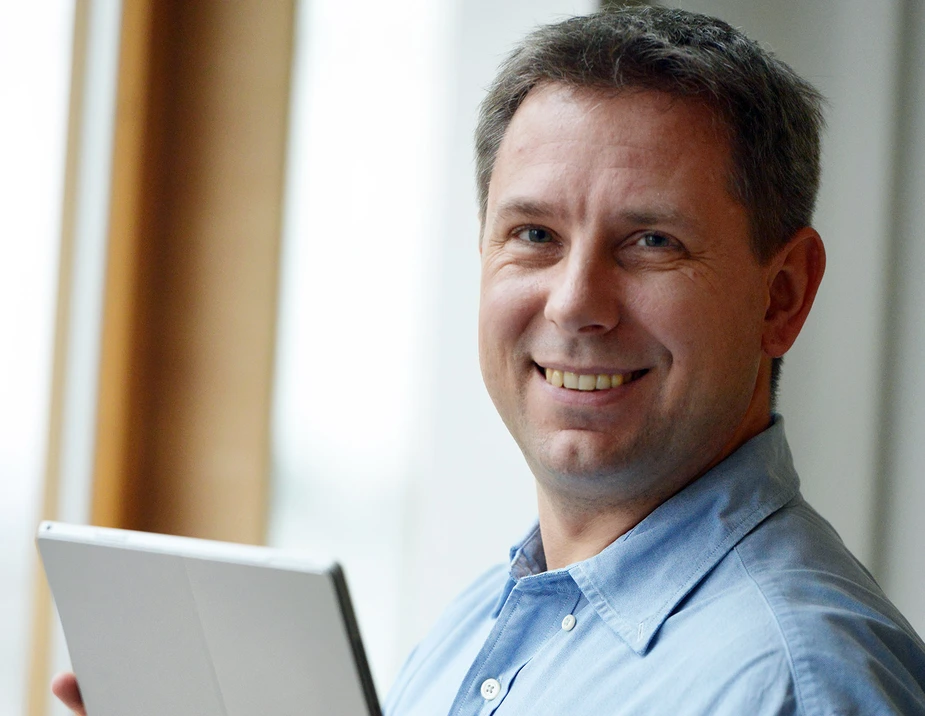The Future of Learning
Students at the Humboldt-Universität’s department for computer science are trained to become the IT specialists of tomorrow
How is higher education adapting to the digital age? In Adlershof, students at the Humboldt-Universität’s department for computer science are trained to become the IT specialists of tomorrow. Other students are also being made fit for the digital age. Curricula are being adjusted all the time, programmes are changed and enhanced to keep up in a fast-changing environment.
Prof. Niels Pinkwart is the dean of the mathematics and natural sciences faculty and full professor for “Computer Science Education / Computer Science and Society”. He runs us through: “For students in the fifth semester, we have created a team project dealing with real-life situations. This includes customers, deadlines and a lot of application, just like in real business life. An additional study programme called “INFOMIT” brings together computer science with library and information sciences. It is aimed at students, who are not computer scientists through and through, but are nonetheless required to learn certain digital techniques. We are planning another new programme called “Mathematics, Computer Science and Physics”, which is scheduled to start next year. We have become aware that many students do not have clear direction when they first come to us. This is where we step in. Additionally, there are many courses for students from other disciplines that are being affected by digitisation. For example, introductions to computer programming for students from all kinds of subjects, or specific courses on teaching with digital media for prospective teachers – most often not computer science teachers.”
Various aspects of the curricula are constantly subject to change. However, there is a fixed standard during the bachelor’s degree. Pinkwart: “Of course, computer scientists must start off by learning what an algorithm is, how a computer is built up and so on. But usually in 5th semester, things get more specific and the students get to choose more.” Keywords include fundamental research, robotics, digital learning software, issues of security and privacy and similar issues related to the “transparent citizen”. A recurring issue are procedures for being able to analyse vast amounts of data. Our research projects always include students, too.
The faculty boasts 175 computer scientist students and, additionally, those studying to become a teacher, INFOMIT and other programmes. The modern lecture hall provides seats for 300 listeners, but that’s not remotely enough. “Our aim is to create a lecture hall large enough for 800 students.”
The Adlerhof-based computer science institute is at the top of German and European rankings. Pinkwart also works as a mentor for innovative start-up projects, including a “digital concierge”, who will fulfil every wish a future hotel guest might have, and a speech-based work time-tracking system. When “Bob the Builder” leaves work, he tells it how long he worked and with whom. Just a second later, the boss has the data in a spreadsheet on his computer. One thing’s for sure, as Pinkwart sums up: “We computer scientists always have to keep an eye on the real world. But now everybody else also has to keep an eye on digitisation.” Those who shrug and claim they’re not interested will be left behind.
By Katrin Reisinger for Adlershof Journal
